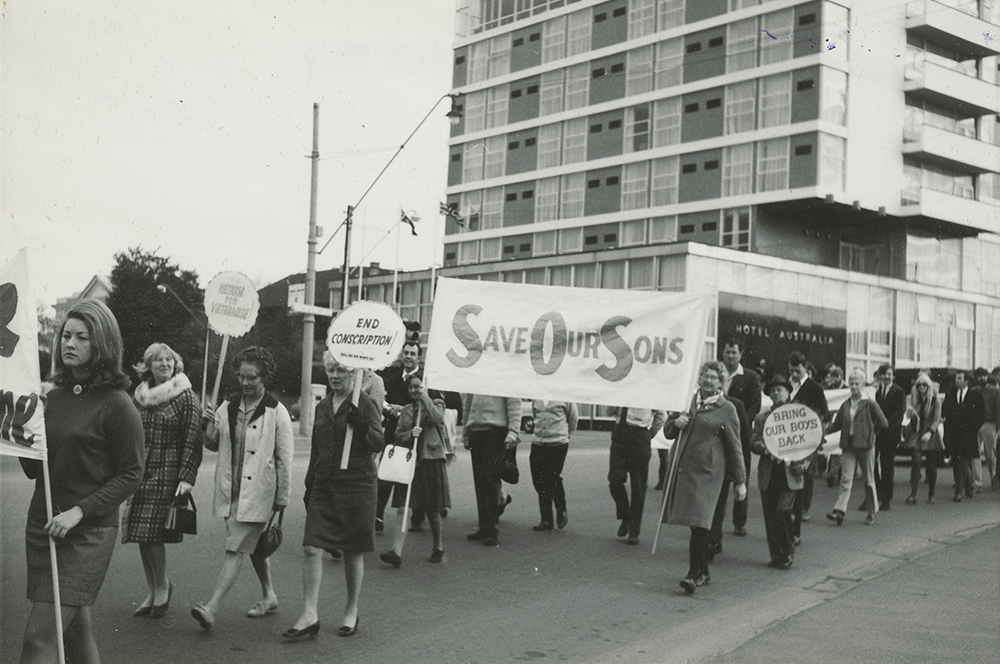Save Our Sons: Women, dissent and conscription in the Vietnam War
Monash University Publishing, $34.95 pb, 360 pp
Stopping ‘Ming’ in his tracks

Two weeks after he announced the reintroduction of conscription in late 1964, Prime Minister Robert Menzies addressed a political rally at Hornsby, in the Liberal heartland of Sydney’s north-west. Menzies received what historian Carolyn Collins described as a ‘rockstar welcome’. However, when he spoke about national service, a group of black-clad women in the audience rose to their feet and covered their heads with black veils, standing silently for several minutes in the face of jeers and boos. They eventually filed out of the hall, handing out anti-conscription pamphlets as they left. Margaret Holmes, who had helped organise the protest, recalled later that it ‘stopped [Menzies] in his tracks’. Organised by the Women’s International League of Peace and Freedom, it was the first women’s protest against conscription in the Vietnam era, but it would not be the last. Weaponising decorous, middle-class femininity would prove to be a potent strategy in the nine long years it took to abolish conscription in Australia.
Continue reading for only $10 per month. Subscribe and gain full access to Australian Book Review. Already a subscriber? Sign in. If you need assistance, feel free to contact us.











Leave a comment
If you are an ABR subscriber, you will need to sign in to post a comment.
If you have forgotten your sign in details, or if you receive an error message when trying to submit your comment, please email your comment (and the name of the article to which it relates) to ABR Comments. We will review your comment and, subject to approval, we will post it under your name.
Please note that all comments must be approved by ABR and comply with our Terms & Conditions.